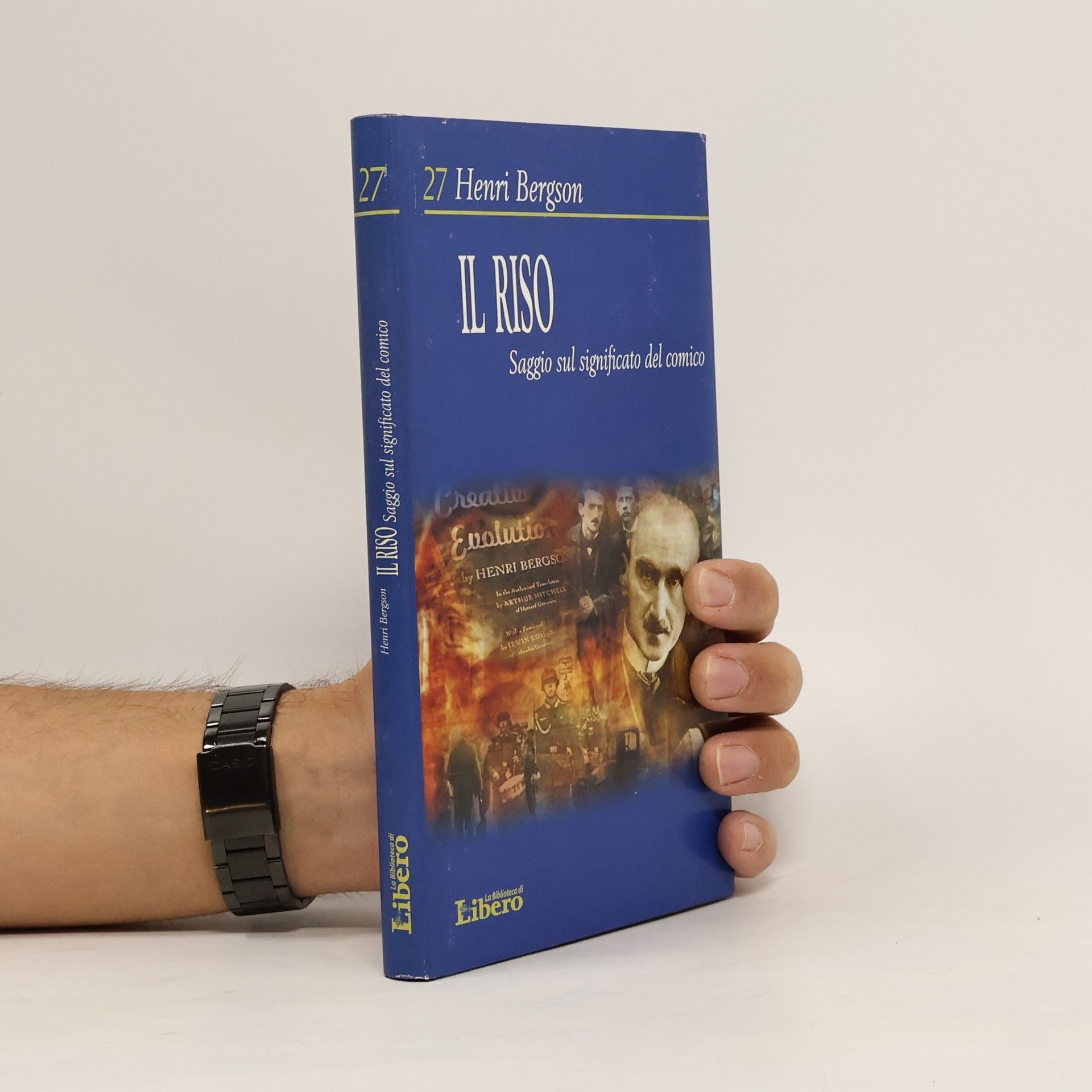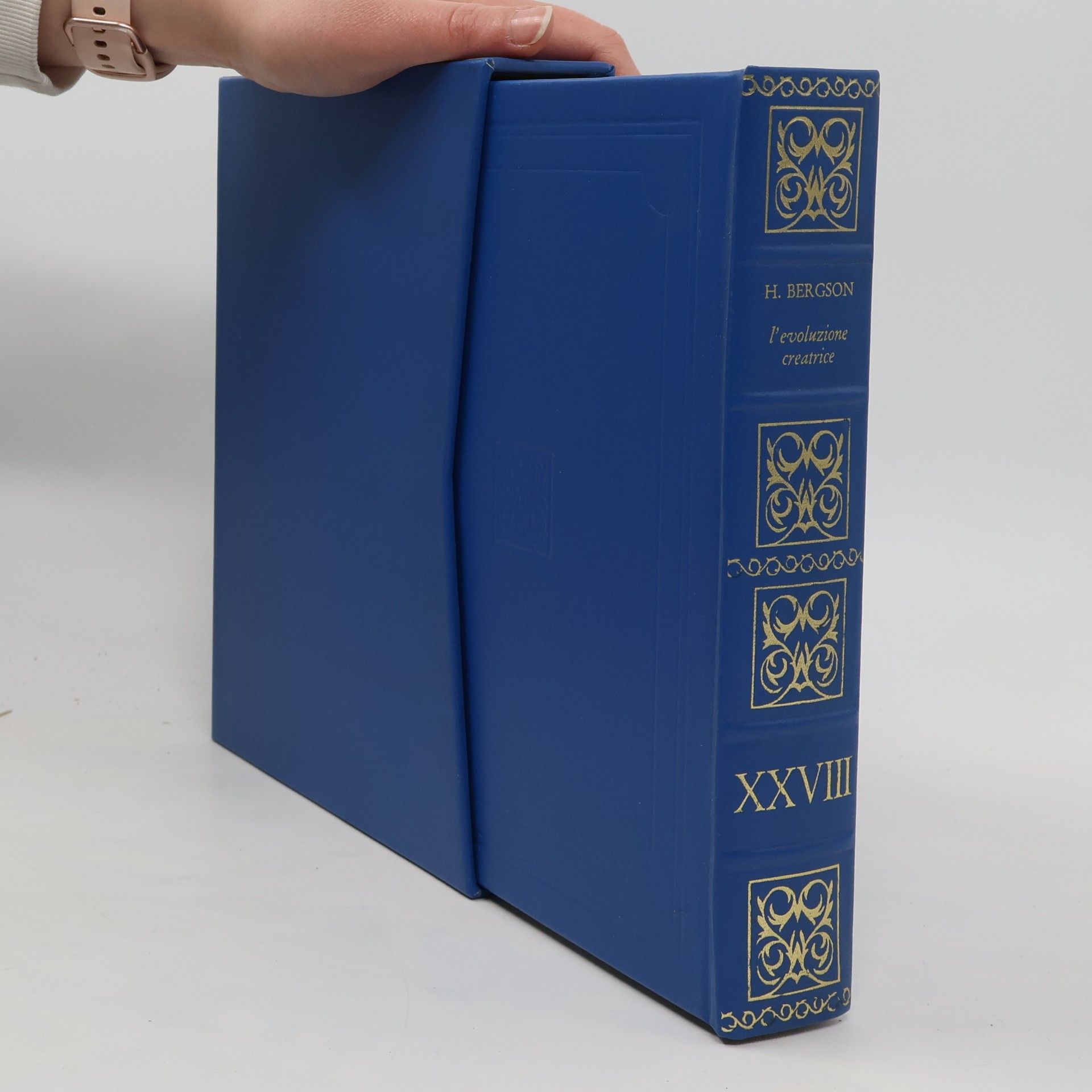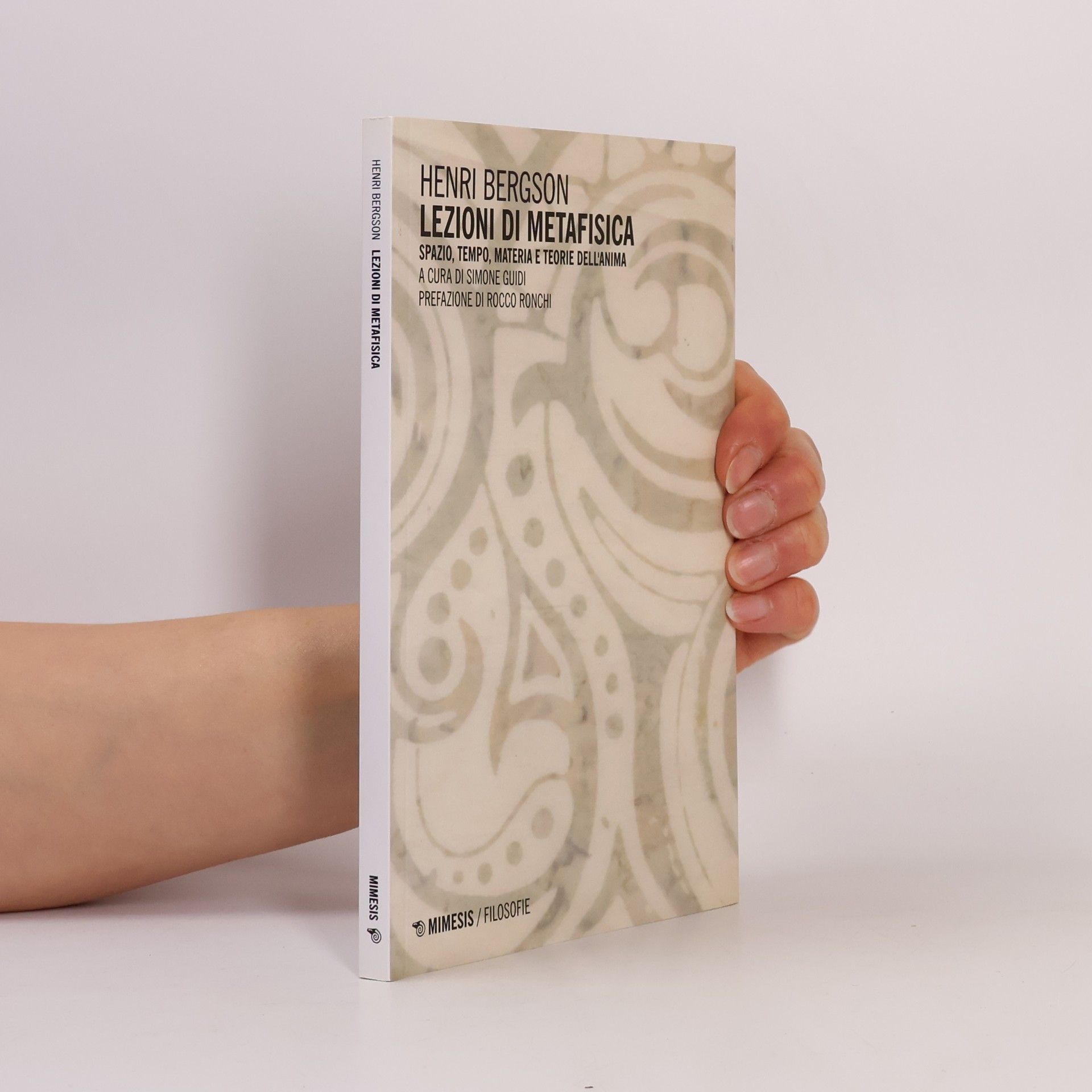Lezioni di metafisica. Spazio, tempo, materia e teorie dell'anima
- 140pagine
- 5 ore di lettura
Henri Bergson si afferma come uno dei filosofi francesi più influenti tra la fine del XIX e l'inizio del XX secolo. Il suo contributo più duraturo al pensiero filosofico risiede nel suo concetto di molteplicità, che cerca di unificare caratteristiche apparentemente contraddittorie: l'eterogeneità e la continuità. Sebbene spesso impegnativo, questo concetto è ampiamente considerato rivoluzionario per aver aperto la strada a una nuova comprensione della comunità.







The book is a facsimile reprint of a scarce antiquarian work, preserving its historical significance and cultural importance. Readers should be aware that due to its age, it may contain imperfections such as marks, notations, and flawed pages. This edition aims to protect and promote classic literature, offering an affordable and high-quality version that remains faithful to the original text.
While intelligence treats everything mechanically, instinct proceeds, so to speak, organically. If...we could ask and it could reply, it would give up to us the most intimate secrets of life. -from Chapter II Anticipating not only modern scientific theories of psychology but also those of cosmology, this astonishing book sets out a impressive goal for itself: to reconcile human biology with a theory of consciousness. First published in France in 1907, and translated into English in 1911, this work of wonder was esteemed at the time in scientific circles and in the popular culture alike for its profound explorations of perception and memory and its surprising conclusions about the nature and value of art. Contending that intuition is deeper than intellect and that the real consequence of evolution is a mental freedom to grow, to change, to seek and create novelty, Bergson reinvigorated the theory of evolution by refusing to see it as merely mechanistic. His expansion on Darwin remains one of the most original and important philosophical arguments for a scientific inquiry still under fire today. French philosopher HENRI BERGSON (1859-1941) was born in Paris. Among his works are Matter and Memory (1896), An Introduction to Metaphysics (1903), and The Two Sources of Morality and Religion (1932). He was awarded the Nobel Prize for Literature in 1927.
French philosopher Henri Bergson produced four major works in his lifetime, the second of which, "Matter and Memory", is a philosophical and complex nineteenth century exploration of human nature and the spirituality of memory. In this work, Bergson investigates the function of the brain, and opposes the idea of memory being of a material nature, lodged within a particular part of the nervous system. He makes a claim early in this essay that Matter and Memory "is frankly dualistic," leading to a careful consideration of the problems in the relation of body and mind. His theories on sense, dualism, pure perception, concept of virtuality and famous image of the memory cone often make Bergson's essay a confusing and challenging existentialist work. However, the years of research and extensive pathological investigations spent in preparation for this and other essays have gained Bergson great distinction as a brilliant, though unjustly neglected, theorist and philosopher.
Bergson argues for free will by showing that the arguments against it come from a confusion of different conceptions of time. As opposed to physicists' idea of measurable time, in human experience life is perceived as a continuous and unmeasurable flow rather than as a succession of marked-off states of consciousness-something that can be measured not quantitatively, but only qualitatively. His conclusion is that free will is an observable fact.
Exploring the nature of laughter, Henri Bergson's treatise delves into its essential role in human society. He argues that comedy serves as a caricature of human behavior, necessitating emotional detachment for laughter to occur. Additionally, laughter fosters social bonds while also distinguishing individuals. This insightful examination offers valuable perspectives for comedians and humor writers, as well as anyone seeking to understand humor's significance in social interactions. This edition features premium acid-free paper and follows a respected translation.
Set against the backdrop of an ongoing conflict, this historical work explores the deeper implications of war on life and existence. It presents a thoughtful examination of the meaning behind the struggles faced during such tumultuous times. The publisher, Forgotten Books, emphasizes the preservation of the original format while addressing imperfections in the text, ensuring that this significant work remains accessible to readers interested in historical perspectives on war.